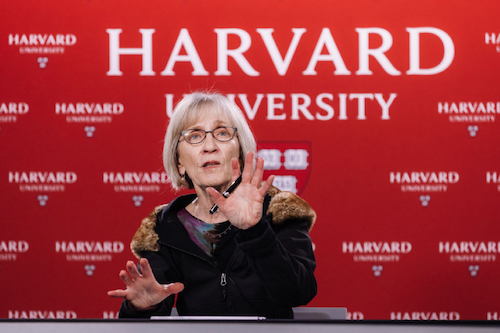(Editor’s note: This post on the impact of AI on jobs is part of our Tech Tuesday series. Dispatches covers tech because so many of our highly skilled internationals are engineers and developers.)
AI will have a significant impact on jobs, but there is a lack of consensus about which jobs, how they will be affected, and what policy steps are needed to ensure a smooth transition in society. Looking at reports by the major players in predicting the future offers some clues where to look, but it doesn’t give a very clear picture of how to see AI.
Will it be a help, creating new and more meaningful jobs, or will it be like the last technology leap, creating rust belts, disillusioned voters and increased political tensions?
These are important questions, so it’s worth spending some time pondering what this will mean.
Main impact on high-paying jobs
McKinsey predicts “by 2030, activities that account for up to 30 percent of hours currently worked across the U.S. economy could be automated – a trend accelerated by generative AI.” The most significant impacts will be automated service jobs and manufacturing. These are relatively well defined jobs, for the most part repetitive, and there are lots of them. If this prediction is correct, both developed and developing countries will be heavily impacted.
A sustainable solution for a world with new-found AI capabilities will also have to find ways to enable low-cost countries, with their better educated work-forces, backed by improved transport and communications infrastructure, to remain viable and not become another victim in the never-ending search for the lowest costs.
The Pew Research Center believes that AI’s main impact will be “in higher-paying fields where a college education and analytical skills can be a plus.” These are not jobs which are very standardized. They require complex decision-making. Obvious candidates are in the legal profession and in healthcare. Both of these involve gathering together a range of expertise, policies and reports to reach carefully reasoned conclusions.
Documented information is a perfect domain for AI, trained on knowledge, to support the decisions of legal and medical specialists. Reducing the amount of time required will make these tasks much easier to provide at a lower cost.
Greedy jobs

So far, we have just touched the surface of occupations where AI will have a major impact. For jobs to change, it is not enough to say that something can be done in another way. There must also be an economic argument. The most recent winner of the Nobel Prize for economics, Claudia Goldin, may have inadvertently found this argument.
The reason Goldin has received this prestigious prize is because she has identified something significant in the jobs market, “greedy jobs.” She has coined the term to describe jobs where a premium is paid by employers for flexibility in terms of large amounts of over-hours and being available on-call at short notice in higher-level, better-paying jobs.
Goldin has found prioritizing work creates tough choices for couples. One person will typically choose to care for a child or an elderly family member while the other brings in the higher salary. Often it is women who sacrifice this salary bonus, which makes it an important reason for gender pay differences.
It is not too much of a leap to expect that companies will invest in changing jobs that cost more. AI’s growing ability to perform activities that fall under the category of “greedy jobs” will be an obvious choice.
This brings a very important point for those in charge of policy to take into account: What will happen when talented, experienced professionals are provided with more time?
Their incomes will likely reduce. For graduates aspiring for these higher-paid professional jobs, there will be fewer opportunities. This change will not happen all at once, but it is essential to plan ahead and take advantage of this change. In many ways, it will be like the return of GI’s after the Second World War. A skilled group of capable people will suddenly be available. At the end of the WWII, there was considerable pessimism about how the world economy would respond to this over-capacity. In reality, it led to a prolonged boom, with new infrastructure, new technology and increased population.
New industries, innovation and cooperation
The lesson from that period is that large programs were initiated to make sure the transition was smooth. Writing about re-adjusting to civilian life in “Tribe,” Sebastian Junger says, “Humans don’t mind hardship, in fact they thrive on it; what they mind is not feeling necessary.” We must try to ensure that with new technical possibilities, we are devoting our capacities to solving large problems. Luckily perhaps, there are no shortage of these. For example, one is in the regeneration of areas that have suffered from the negative aspects of globalization during the past decades. This will involve new industries, lots of innovation and close cooperation between government and industry.
The policy options here are quite wide:
One approach is to provide capital that encourages companies to lead in innovation and make use of the extra capacity of their work force. This could unleash considerable results to reduce the impact of global warming, to address structural issues in the way medicine has become too complex or to provide better, more personalized education for the next generation through mentoring programs.
Another approach that would by-pass companies is to further reduce the working week, encouraging more time for community work, for high-tech startups or to deal with the legacy of colonialism of much of the world. Re-engineering society on this scale was unimaginable in 2019, but we have discovered through the effective response to Corona that it is possible to completely redirect working patterns and ensure people had sufficient amounts to live on.
Globalization has too often been a zero-sum game, all about competition for scarce resources, leading to new conflicts, mass immigration and political turmoil. It has also led to the reduced price of goods and higher levels of opportunities for some of the poorest countries.
Any benefits from AI that raise the prosperity of people need to be shared to prevent scarcity elsewhere.
Policies that share the positive developments of shorter working hours can also bring benefits to under-developed countries and repair some of the historical damage of colonialism. Competition for resources can be reduced if taken into account up front.
Promoting human-centric work
When people have more time available, it will still be important they use this time for meaningful activity and self-discovery. This will mean additional demand by individuals for volunteering opportunities, for learning and applying new skills and for developing individual entrepreneurship. Changes to tax and legal codes will be needed to increase flexibility for workers. Programs that support the change of perspective from fixed work to more individual freedom will be needed.
Improvements will have a positive impact on the performance of companies and reduce the stress from long working hours on families and society. These ideas are at the very heart of a concept known as Industry 5.0, which promotes sustainability, human-centric work and industry resilience. As each company adapts to new technology, it is likely some industries will find it easier to accommodate change than others. This will depend on the level of competition, but perhaps more importantly, on the fixed versus growth mentality of their leaders.
For this reason, now is the time to develop new policies to support individuals, society and companies. The lessons of the failure to study the effects of globalization on society, on community harmony and on personal well-being suggest this cannot be ignored by legislators or business people.
Now is the right time to embed this in the political discussion and be fully prepared to take advantage of the technical opportunities of AI.
What is your view, though? Do you see a future where AI will take over greedy jobs? What will the impact be? Will it be a solution for many of society’s ills or will it create deeper ones?

Shane Ó Seasnáin
Shane Ó Seasnáin is an AI expert, originally from Ireland, who works within various organizations in the Netherlands and across Europe. He has three simple steps for successful AI use: be curious about the world, ask questions about whether this is the best we can do, and determine how AI can deliver a better world. He believes that there are many ways we can radically transform our environment, healthcare, and industry using AI, but it is always with the goal of making people more capable and happy.














